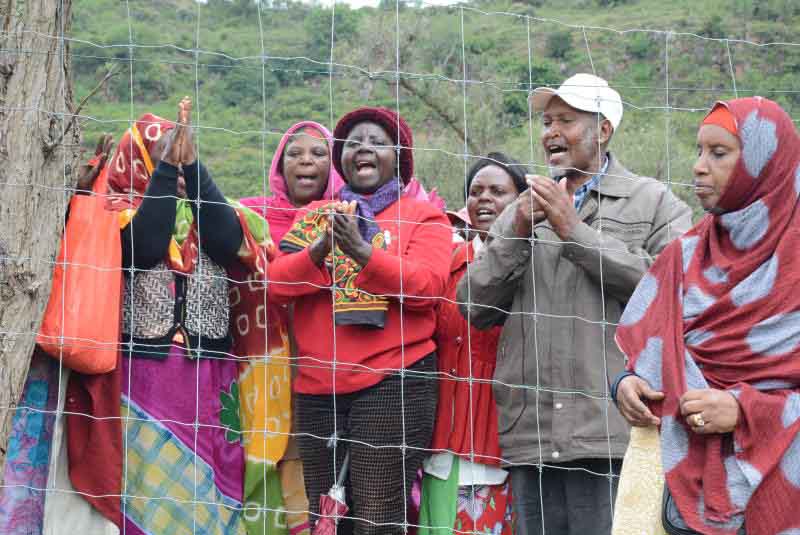×
The Standard e-Paper
Stay Informed, Even Offline

Members of the Isahakia community in Naivasha protest on a parcel of land that they claim ownership and which has been fenced off by KWS officers. [Courtesy]
Naivasha has been dubbed the next hub of business, thanks to several upcoming capital projects in and around the lakeside town.